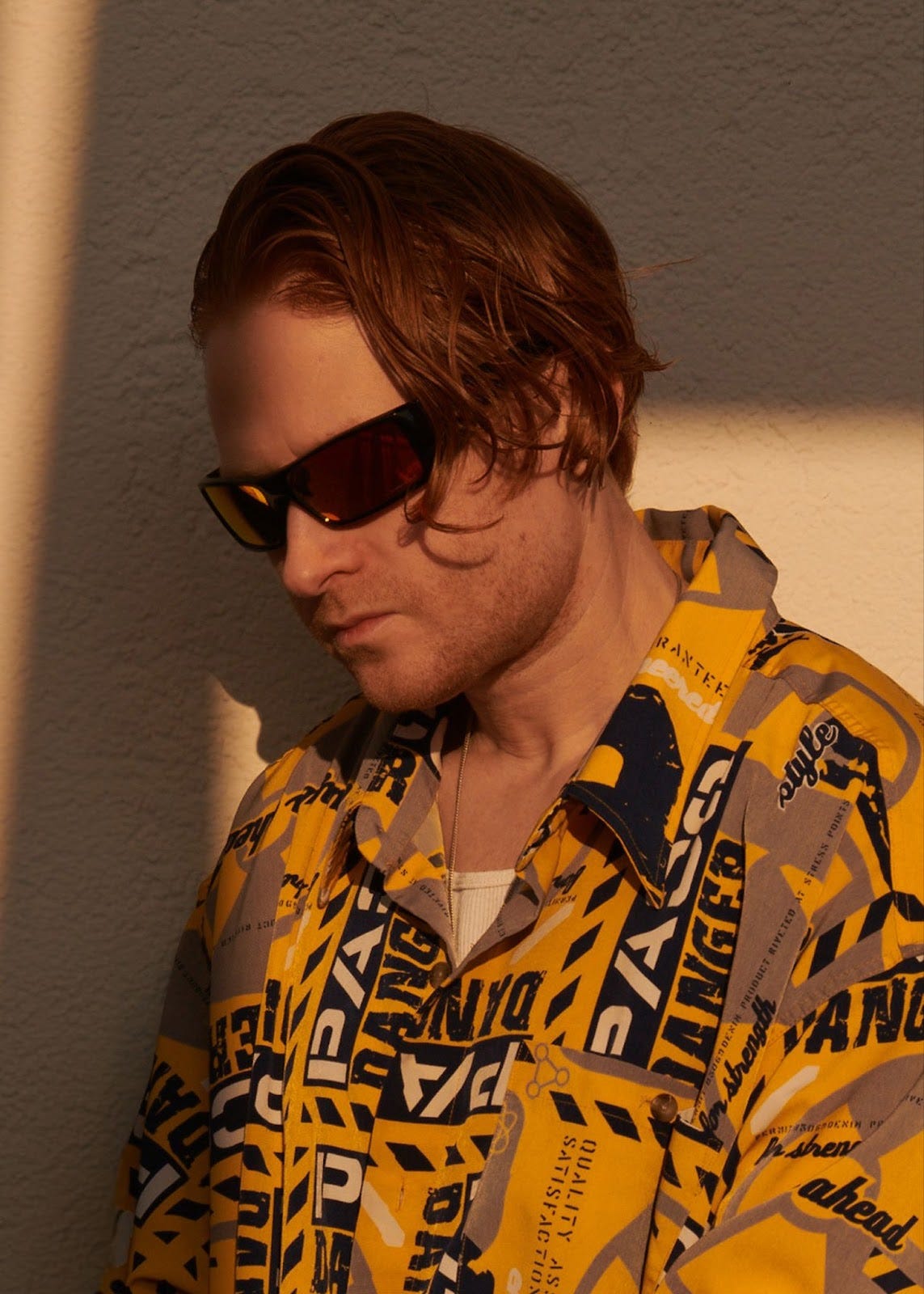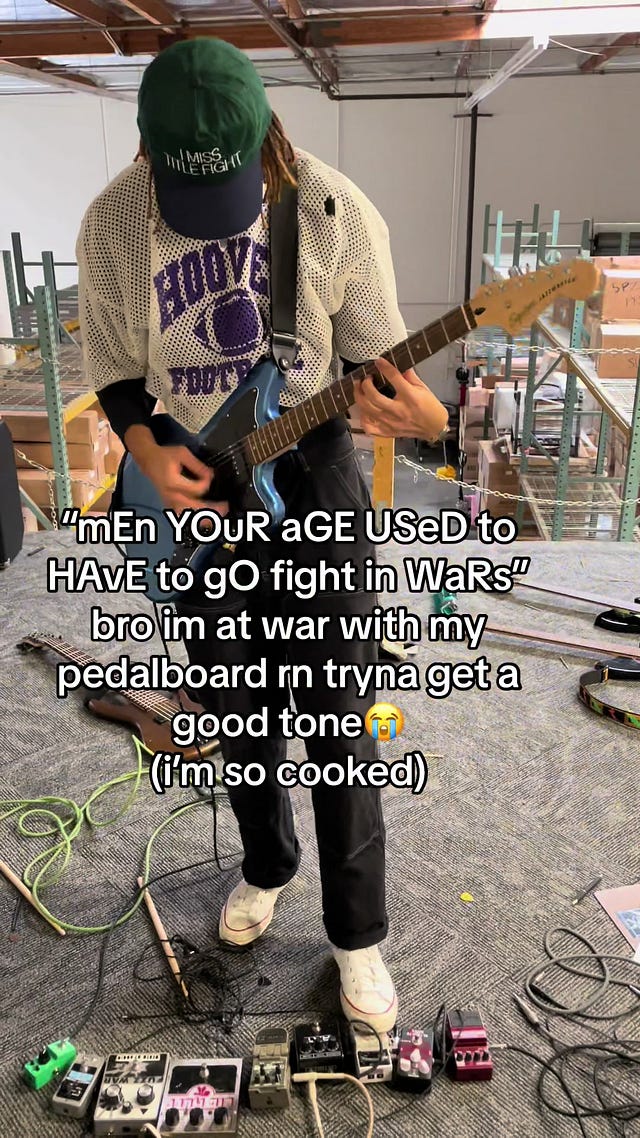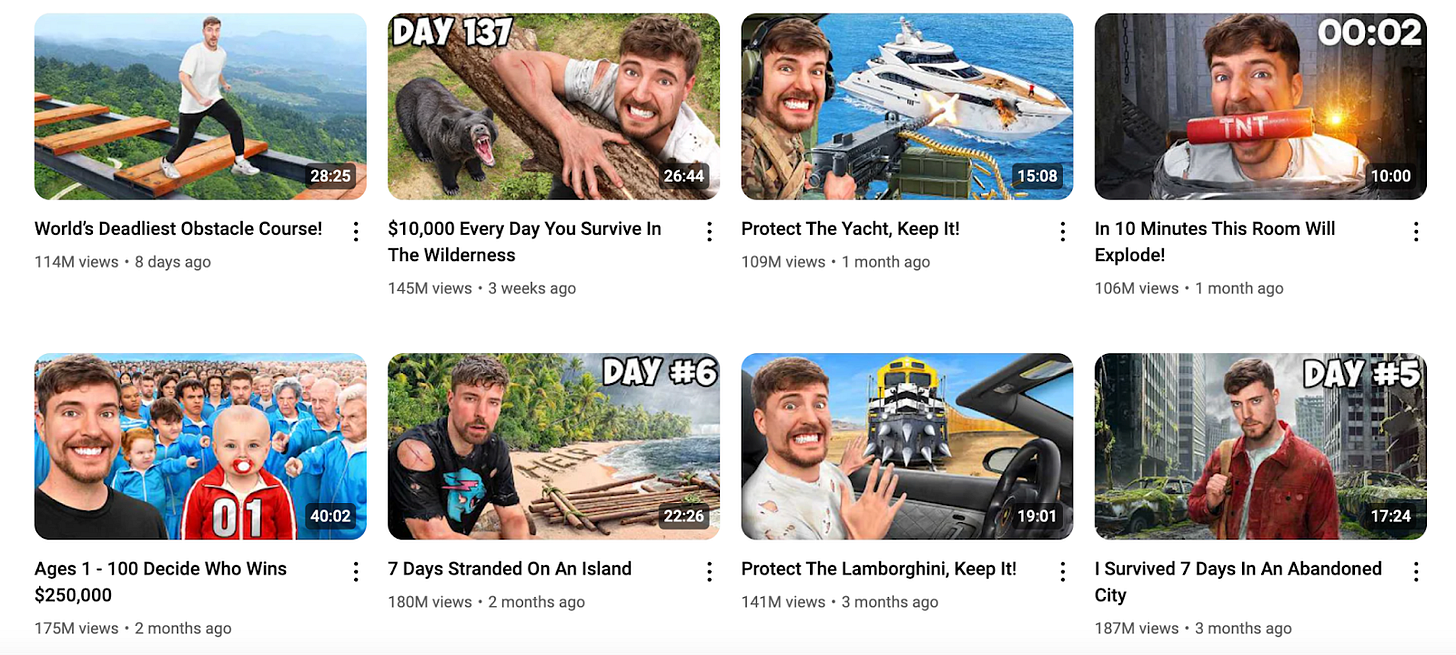In a brutalist culture, is resilience the new relevance?
The mechanics of fame and relevance, with LIL INTERNET.
For our latest In conversation with, MØRNING Strategy Lead Shadeh Kavousian sits down with director, writer and co-host of the New Models Podcast, LIL INTERNET, to discuss our new report, The Age Of Relevance (download here).
The prophet of our digital age had graciously agreed to speak with us, and I couldn't shake off my nerves. After wrapping up our second ever MØRNING report, "The Age of Relevance," we finally secured some time with Lil Internet to delve into its themes. Known as one of the most unconventional thinkers on our big old Internet, I wanted to come across as smart and make sure the ideas from our report were given justice.
Yet, as soon as we connected he proved disarmingly charming and relatable. I mentioned I was expecting a child, and he candidly shared his own experiences, likening babies to "kawaii-Lovecraftian creatures" instantly putting me at ease. Phew, we had ourselves a real one.
Our conversation spanned from Azealia Banks to Milton Friedman, touching on topics as diverse as sincere LARPing, the attention economy, and controversy. A journey that underscored his unique perspective and our shared fascination with the digital landscape.
Shadeh Kavousian: To start off, you’ve spoken a lot before about the physics and mechanics of contemporary media. In your opinion, who owns relevance today?
LIL INTERNET: I see it in terms of images or diagrams, because a lot of what we end up analysing and talking about are really dynamic systems.
With celebrity and relevance, it's a rotational gravity that pulls attention into orbit. You could also see it as a scaffold upon which all kinds of media, games and activities can persist like gossip, debate, fandom or controversy. It's an iterative machine. Someone I used to work with, Azealia Banks is kind of the queen of proving that controversy, even cancellations can just keep a flywheel going for decades, right? Social media is hundreds of millions of people testing content against each other. Relevance can arise anywhere there's a strong enough resonance with the collective unconscious. Eventually, something's going to hit and vibrate something larger.
Social media is hundreds of millions of people testing content against each other. Relevance can arise anywhere there's a strong enough resonance with the collective unconscious. Eventually, something's going to hit and vibrate something larger.
SK: I like that you referenced Azealia Banks as a celebrity who is not really cancelled but disgraced. We discuss redemption arcs in our report, for example with John Galliano or Kanye West. It seems we’ve landed in this post-woke era, where we are okay with people being multifaceted, both bad and good. Do you think our relationship to the disgraced, or the idea of cancellation has changed in any way?
LI: Azealia Banks has proven that if you don't back down, it's just more momentum. Ultimately, there’s this blunt fact that attention is the currency of our time, and it doesn't matter if you get it through controversy or activism. Like cash, it's exchanged for other forms of value. So yes, I think we are post cancel culture at this point. People realised it doesn’t work and then started attaching intellectual discourse to it, of nuance and redemption arcs.
SK: I love this idea of the blunt currency of attention. Me and my sister always joke about Azealia Banks, we almost want her to insult us. It's kind of iconic to have Azealia Banks say something horrible about you. I’m like “read me, read me!”
LI: Ironically, the first person I ever saw use the word "cancelled" was Azealia. A fan asked her on Twitter if we were making any more tracks together and she replied "No. Lil Internet is cancelled."
SK: We’re in this phase where it feels like so many brands are in the periphery of our vision that we struggle to even see them or connect tangibly anymore.
We believe the next stage is brands becoming more brutalist, trying to attack us in more direct ways. This doesn't necessarily mean aggressive or bad, it's about communications becoming a lot clearer.
LI: I think brands are more resilient and more powerful than they think, and can probably bounce back from just about anything.
The most risky thing for brands to do right now is to engage in activism or any sort of political ‘do the right thing’ pursuit, though its kind of fucked up to say that.
The most risky thing for brands to do right now is engaging in activism or any sort of political ‘do the right thing’ pursuit, though its kind of fucked up to say that. However, nobody ever asked for brands to make statements of solidarity. On visual platforms like Instagram and TikTok, brand content should be separate from activism. Brands can go pretty wild here, it's way more exciting. We discussed SSENSE, Duolingo or Yeezy Superbowl, which show the risk to audience perception is lower than brands may think.
SK: Agree. We don't want brands to act like human beings anymore, we want brands to be brands again.
Longevity also feels lost right now. How can we hold space for meaning and ideas that push the boundaries, or is longevity just a myth these days?
LI: I think to be honest it's too soon to tell. We’re only a couple of years into this TikTok driven subcultural explosion which I personally love. I really hope TikTok isn't banned because it's made culture so much more exciting.
Past subcultures have new relevance because they have all these elements that create a scaffold for interaction, we have Zoomers making Shoegaze or Jumpstyle from 2008 now, it's so fascinating to see.
 Tiktok failed to load.
Tiktok failed to load.Enable 3rd party cookies or use another browser
However this shift is so recent that I don’t know how it will translate to longevity. I expect that people aren't going to be subcultural “lifers” because authenticity doesn’t function the same way anymore. Now that we have instant access to (most) subcultures and can adopt all the codes, it's more like sincere LARPing, right? Though it only works if everybody is doing it sincerely, like kayfabe. Subculture is no longer the dedicated, quasi-religious way of life it once was.
Ultimately, longevity relates back to that momentum and gravity that's spun up. Is there enough in the idea for people to stay engaged, and constantly build upon in new ways?
SK: I love the idea of sincere LARPing. Reminds me of this girl who calls herself @Bellahadid039 on TikTok. She's the opposite of authenticity and as one of her millions of followers I am lapping it up. She just got gifted from the real Bella Hadid, it's crazy to see the power of the LARP and the metafiction of culture.
LI: When you apply this to brands and culture, it's really Virgil Abloh who made this clear, he saw himself as an aggregator. Aggregation has been at the centre of creativity forever. It was just this weird, old Gen-X Millennial myth of individual creative exceptionalism, that you had to come up with your own brilliant idea in a vacuum.
Aggregation has been at the centre of creativity forever. It was just this weird, old Gen-X Millennial myth of individual creative exceptionalism, that you had to come up with your own brilliant idea in a vacuum.
Both Joey Ramone (of the Ramones) and David Bowie participated in multiple different subcultures over their careers, big artists scene jumped all the time. The idea of authentic adherence to a single thing was just this short period that I unfortunately happened to be a teenager through.
Brands’ longevity comes from their own aggregation of the different choices and communications they make in succession over time, like gifting something to @Bellahadid039. Hit something cool in the moment and it might fizzle out after six months, but it's still a win. Hit something cringe, it fizzles out, that's a loss, but it's not going to ruin the public's perception of you. Longevity is built on the largest scales.
SK: Currently, we're in a constant state of performance online, acutely aware that we are always being perceived. Have our online lifestyles affected our sense of identity in any way?
LI: Absolutely.
Depending on how you use it, most of us definitely submit our sense of self and subjectivity to algorithmic priorities and rewards. Mr. Beast is a great example of this, he is no longer the director of his content, the algorithm and the swarm are. Whatever his audience wants to see that he can iterate on again and again is what he is rewarded for.
I'm also fascinated by the aesthetic of influencer YouTube thumbnails right now. They’re often badly Photoshopped or Midjourneyed faces pointing at something weird, with a random black eye or a stupid open mouth reaction. Everything is hyperbolic in this really uncanny valley way but it's become so ubiquitous we don’t notice the weirdness. The aesthetic of these thumbnails are simply not human, they do not come from our own creativity and subjectivity. It's an utterly alien aesthetic which is quite disturbing, yet the algorithm reinforcement of it ends up attracting people and getting more clicks through this so-called human creativity. I think it's most effective to think of the recommendation algorithm as a kind of artificial intelligence, as it is directing the way people act and make content.
I think it's most effective to think of the recommendation algorithm as a kind of artificial intelligence, as it is directing the way people act and make content.
SK: These alien forms of creativity relate to the decentralisation of self we discuss in the report, as many of us now attempt to evade those algorithmic forces. Do you think the algorithm has made us flatter or more complex?
LI: If the online has become your primary space of existence and identity formation, it's absolutely flattening. It really depends on your relationship to it. We can’t forget that it’s literally a flat space with no distance between you and another person. It's extremely crowded and noisy and you have no control over what appears in front of you, I think this kind of makes people go crazy.
SK: I agree with you but I also think it makes you more complex.
LI: The complexity lies in people having much broader interests now. The average consumer’s aptitude and literacy online has improved, including knowing how brands work. We’ve all seen the scare pieces in mainstream media about six year old skincare influencers advising what not to mix with retinols.
SK: Why not both? The algorithm makes us more complex and more flat.
LI: There’s definitely elements of both.
I think it flattens our understanding of the world, but our media environment is far more complex, and so our identities are more complex as well. I think the tension between the freedom we have to shift between multiple identities online and the expectation to have a single identity IRL makes the experience of being a young person far more complex today. You will have five different personalities on Discord, but you will remain full-on goth at Christmas dinner.
SK: Ok one last question, if you could cancel or erase anyone, who would it be?
LI: I can’t really say anyone in the present, but Milton Friedman. He’s the biggest villain.
SK: I just Googled him. Agreed, terrible.
Let's end it there!
Until next time readers!










